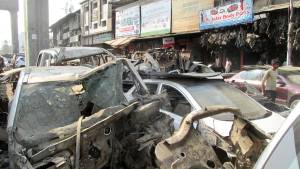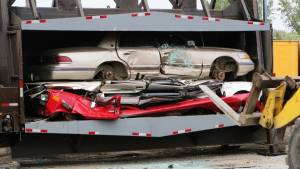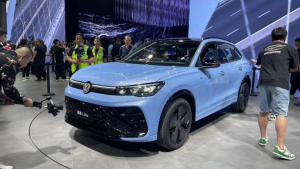Scrappage Policy - A crucial joint representation made to the government to save vehicles older than 30 years
The new scrappage policy is a matter of grave concern to all those who have old vehicles. The policy says that motor vehicles that are 50 years old and which are registered as "vintage motor vehicles" under the proposed new registration rules will not be subject to the scrappage policy. While this is terrific news, it's distressing that there is nothing about cars and bikes over 30 years old, which in many countries are considered as "modern classics" or "young timers" and given the necessary protection.
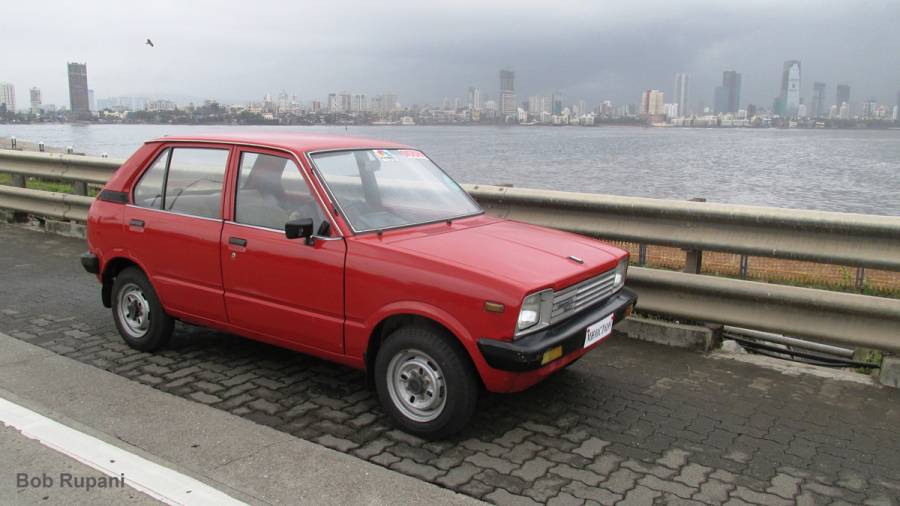 A joint representation has been made to the government, by 45 historic vehicle clubs and museums to exempt vehicles older than 30 years from the scrappage policy
A joint representation has been made to the government, by 45 historic vehicle clubs and museums to exempt vehicles older than 30 years from the scrappage policy
If the age limit for "vintage motor vehicles" is not reduced from 50 to 30 years, it will mean the signing of a death warrant for so many collectable vehicles. Just let me cite a few examples of what will die. All Fiats', Ambassador's and Mahindra Jeep's and also all two-wheeler's made after 1971. All vehicles made prior to 2001 including Standard Gazel's, Standard 2000's, Sipani Dolphin's, Premier 118 NE's, Contessa Classic's, Opel Astra's, Tata Sierra's, Honda City's, Maruti 800's, Hyundai Santro's, and what have you. Of course all the Royal Enfield's made between 1971 and 2001 will go, as will all the iconic motorcycles like the Yamaha RD 350, Yamaha RX 100 and so many more. An entire chapter and legacy of Indian motoring history will get wiped out. Even all the foreign cars like the iconic Mercedes-Benz W123 that people are now collecting, will go as will all other foreign cars imported into India between 1971 and 2001.
 If the scrappage policy is not amended, it will be the death sentence for all vehicles made between 1971 and 2001
If the scrappage policy is not amended, it will be the death sentence for all vehicles made between 1971 and 2001
Some people are arguing that the scrappage policy is voluntary and old vehicles can be retained if they pass the test and obtain a fitness certificate. Then the registration can be renewed by paying the higher fees, green tax, etc. Details of the new completely computerized test have emerged and there are serious doubts if vehicles that are 20 years or older, will clear this test. The cost of renewing the registration is also quite high, and all this has clearly been done to deter people from keeping old vehicles.
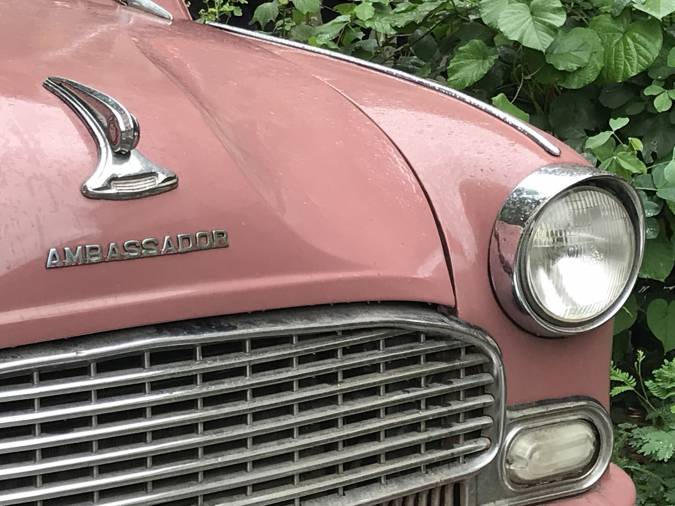 The death warrant is hanging over the heads of all Hindustan Ambassador's manufactured between 1971 and 2001
The death warrant is hanging over the heads of all Hindustan Ambassador's manufactured between 1971 and 2001
It is this "dangling death sentence" that has shaken up Indian automotive enthusiasts and classic vehicle owners and got them together like never before. It has resulted in a joint 24 page representation that has been signed and sent to the Ministry of Road Transport and Highways (MoRTH) on 16th April, 2021, by 45 historic vehicle clubs and museums, representing 17 cities and 11 states and union territories of India.
 The first motorcycle purchased by former India cricket captain Mahendra Singh Dhoni, is this Yamaha RD 350 that is still with him. But if the policy is not changed, he may have to scrap it
The first motorcycle purchased by former India cricket captain Mahendra Singh Dhoni, is this Yamaha RD 350 that is still with him. But if the policy is not changed, he may have to scrap it
The main points of this joint representation sent to MoRTH are -
- The cut off age for vintage motor vehicles should be reduced from 50 years to 30 years from the date of manufacture. This basically means vintage motor vehicles older than 30 years should be permitted to be registered under the proposed draft rules of "Special Provision for registration of Vintage Motor Vehicles" as these vehicles are very small in number and are an important part of our national industrial and automotive heritage.
- Vintage vehicles should be allowed to use public roads for any personal use. There should be no restrictions, but no commercial use whatsoever may be permitted.
- Vintage vehicles must be exempt from various regulations like obtaining pollution under control certificate and fitness certificate, simply because historic vehicles cannot be mechanically modified to meet the new proposed fitness or pollution norms as any such alterations will completely destroy the authenticity and originality of these historic vehicles.
- The registration of "Vintage Vehicles" should be permitted on a self-certification/declaration basis just as in the case of our Income Tax Returns. Certification of vintage vehicles should not require any committee to certify vintage vehicles and there is no need to involve a representative of any private Automobile Association, federation, club, and so on, as such involvement of representatives will create unnecessary red tape and provide scope for corruption and influence peddling.
 The policy could also mean the end for all the Mercedes-Benz W-124's assembled and sold in India
The policy could also mean the end for all the Mercedes-Benz W-124's assembled and sold in India
An online petition requesting our government to protect the "Automotive Heritage of India", was also started on social media on 20th April, and at the time of posting this story, over 6000 people had already signed it. This just shows how concerned people are and how strongly they feel about this.
 The legendary Yamaha RX 100, the first affordable modern performance bike made in India, is facing the death penalty too
The legendary Yamaha RX 100, the first affordable modern performance bike made in India, is facing the death penalty too
But, two major organizations involved with the historic vehicle movement in India, the VCCCI (Vintage and Classic Car Club of India) and the FHVI (Federation of Historic Vehicles of India) have not signed the joint representation sent to MoRTH. Dr. Ravi Prakash, president of the FHVI said, "FHVI is committed to the holistic approach to help resolve all issues concerning historic vehicle owners in India. Our team has already met the concerned government officials on behalf of 85 percent of the historic vehicle collectors in India. These meetings happened in December 2019 and January 2021, and we have put forth the amendments required in the scrappage policy to safeguard the interest of historic vehicle owners in India. Hence FHVI has not signed the petition. With respect to the self-certification of vintage vehicles, we believe it's highly necessary to have a recognized technical committee or body to do the validation because currently the majority of historic vehicle RC books have incorrect technical information. Further, as FHVI is proposing FIVA (Fédération Internationale des Véhicules Anciens) identification cards for each historic vehicle to get global recognition, there can be no room for error on technical information. FHVI is also proud to see the proactive initiative of the online petition, spearheaded by individual collectors across the country. This support will greatly help strengthen the cause".
 Goodbye Premier Padmini
Goodbye Premier Padmini
FHVI has given its reasoning and also said that they are not in favour of "self-certification". I reached out to the Chairman of VCCCI, Nitin Dossa too, but there has been no response. So one is not aware of the exact reasons for VCCCI not signing, but someone on the inside who does not want to be identified, says the biggest point of difference is that like FHVI, VCCCI too wants a say in the "certification of vintage vehicles" and credit for any amendments to the policy. If this is indeed the case, then it's quite sad because its a missed opportunity for the entire historic vehicle community to project a united position to the government.
 The Tata Sierra, one of India's first SUVs will also get killed
The Tata Sierra, one of India's first SUVs will also get killed
Interestingly, 4 members of the FHVI have signed the representation. So obviously these 4 have contrary views and have decided to take a stand different to that of the FHVI. A letter in support of this representation has also been sent to MoRTH by Manvendra Singh Barwani, a highly respected automotive historian, restorer and curator of the Cartier Concourse D' Elegance event, which was the first to introduce a special "Indian Heritage Class". Letters have also been sent by K.T.S Tulsi senior advocate and MP Rajya Sabha; Dr. Amar Patnaik MP Rajya Sabha, Diya Kumari MP Lok Sabha and industrialists Harsh Pati Singhania and Yohan Poonawalla.
 As will all cars imported into India between 1971 and 2001
As will all cars imported into India between 1971 and 2001
In all this talk of the scrappage policy and historic vehicles, one aspect that has somehow slipped under the radar of most people, is the use of old cars by retired senior citizens and pensioners, especially those from our armed forces. These valiant warriors, who so bravely defend the borders of our nation, usually purchase a vehicle from the CSD (Canteen Stores Department) depots just before retiring. For most of them it's the last vehicle they buy and they retain it till the end of their lives. Quite a few retire to places that have a cantonment with officer's mess, clubs, and so on, and most of their commuting in the vehicle happens in a very short radius. In many cases the annual distance covered by their vehicles, is just a few thousand kilometres. And being from the armed forces, they are also disciplined with the maintenance and upkeep of their vehicles, so most are in very good condition even after 15 or 20 years of use. Given this, it's highly unfair to ask people like these who are living on a pension, to scrap their vehicles and buy a new one. It will put an unnecessary financial burden on them and few retired officers I spoke with, are already getting stressed about having to scrap their vehicles. One of them has a 1996 Maruti Esteem that has done just 26,000 km and is in showroom condition because it's been well looked after and always parked inside a proper garage. I fervently hope our government considers all these things and makes the required changes, amendments and concessions in the proposed scrappage policy. This "death warrant of old cars" certainly needs some rethinking.
Also see:
Vehicle Scrappage Policy - the complete picture - all you need to know
Vehicle Scrappage Policy - is it as good as it sounds?
Vehicle Scrappage Policy - Views of Dr. Ravi Prakash, President, FHVI
Vehicle Scrappage Policy - Views of Diljeet Titus, General Secretary HMCI
Vehicle Scrappage Policy - Views of Gautam Sen, Vice President - FIVA
Vehicle Scrappage Policy - Views of auto historian Manvendra Singh Barwani
Vehicle Scrappage Policy - Views of Dr. Anjan Chatterjee, Secretary CIVAA
Vehicle Scrappage Policy - Views of T.Thakral, Heritage Transport Museum
Vehicle Scrappage Policy - Views of Ranjit Pratap, President HCAI
Vehicle Scrappage Policy - Views of T. R. Raghunandan, Ex-IAS officer
Starts Rs 10.9 Lakhs
1497cc
Manual
100
145
17.8 Kmpl
Starts Rs 3.9 Lakhs
1086cc
Manual
59
84.33
-NA-
Starts Rs 1,02,700
149cc
5-Speed
12.40
13.60
-NA-
Related Stories
Top Stories
Latest Videos
Most Popular
- Budget Sportbike Showdown: Kawasaki Ninja 500 vs Aprilia RS 457 vs Yamaha YZF-R3
- 2014 Triumph Daytona 675 vs 2024 Kawasaki ZX6R - A Decade of Evolution in Supersport Motorcycles
- Mumbai-Pune Expressway speed restrictions updated
- Bajaj NS400 picture leaked ahead of its launch
- Nissan Magnite EZ-Shift review - is the AMT any good?
